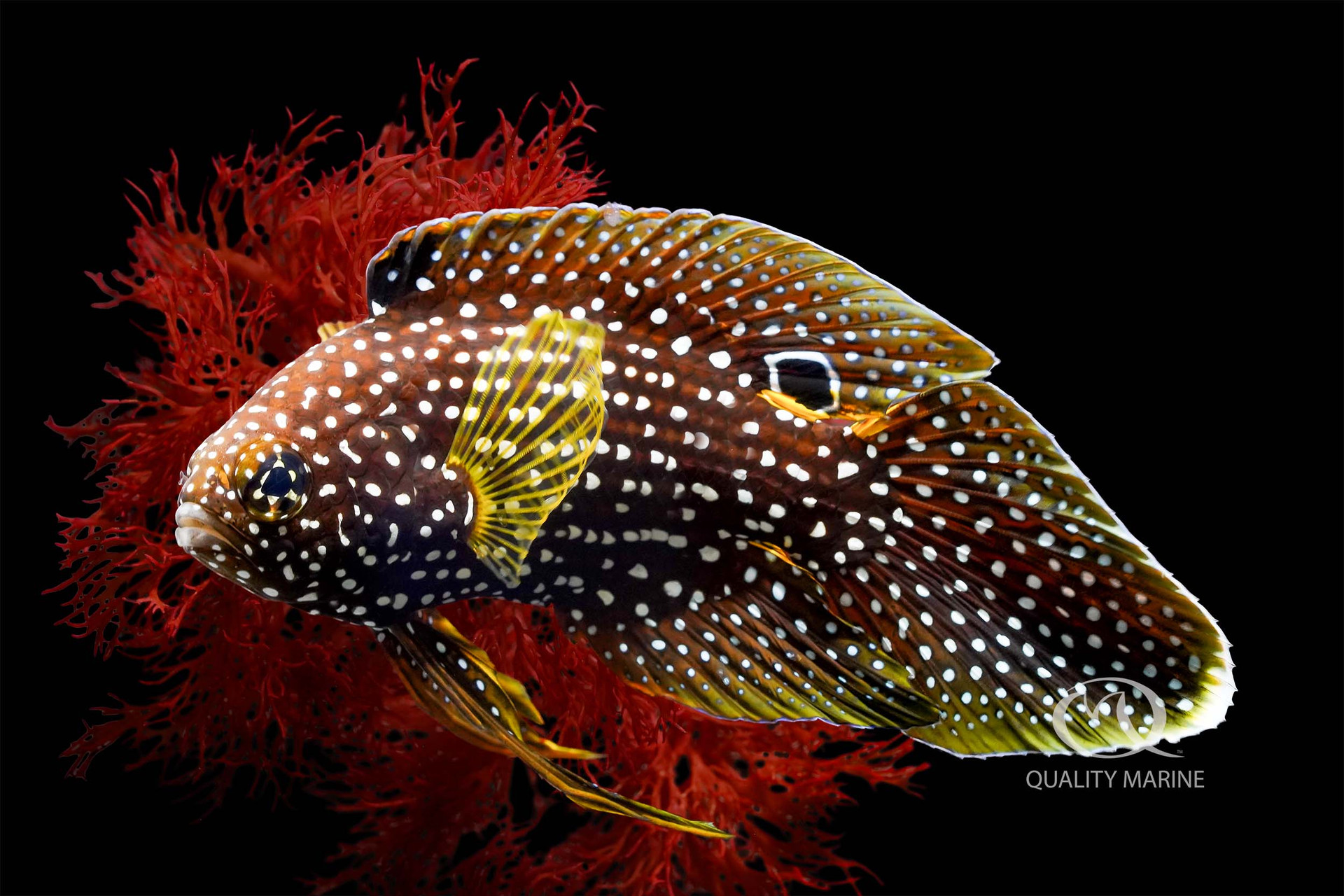A Marine Betta Fish? Weeeeel....

Calloplesiops altivelis is called the Comet Fish (or some variation of Comet) in nearly the entire world except for Indonesia and the United States where we call it the Marine Betta. Regardless of the common name, it is a member of a larger group of fish called “Roundheads” which is a bit of a melange. Commonly it is lumped with “Groupers” but isn't actually in the family Serranidae so technically it isn't one, but it also isn't a Betta, so... moving on.
Calloplesiops altivelis has an interesting trait in that they can mimic a moray eel for self defense. When threatened, they will stick their head in a hole on the reef, this makes the spot on their dorsal fin (called an ocellus) look surprisingly like the eye of the eel. A quick google search will show you dozens of images of this phenomenon. They are found singly in tropical reef environments throughout the Indo-Pacific Oceans; generally under rocky overhangs and in holes on the reef where they can hide in peace during the day. They emerge at night to forage.
In the wild, Bettas eggs are deposited on substrate then fertilized and guarded by the male parent. Marine Bettas have been bred and raised in captivity, and these aquacultured specimens are occasionally available for hobbyists to buy. However, production remains limited and thus most of the Marine Bettas available for market are wild caught.
In the aquarium, Marine Bettas are spectacular aquarium fish. They are gorgeous, segue to prepared foods easily and resistant to most common aquarium maladies. They are sedate and peaceful, which seems an odd trait for a predator fish, but also means they don't need nearly as much space as other fish that reach their max length of around seven or eight inches. Their peaceful nature lends itself to being bullied by aggressive fish, however, they will also hunt down smaller fish as is their nature. Picking suitable tankmates for them must be done thoughtfully, good pairings include sessile inverts, small anglers, large anthias, etc. Bettas will be most at home in aquariums that offer them a lot of cover and places to hide from bright lighting. Over time, they learn to overcome their nocturnal nature and become more active during the day as that is when food is available.
If you've been looking for a “showpiece” for your aquarium, the Marine Betta ticks all the boxes. You can trust Quality Marine to get you the best, most sustainable option available for you. Have your LFS give us a call today!
http://www.marinespecies.org/aphia.php?p=taxdetails&id=218340